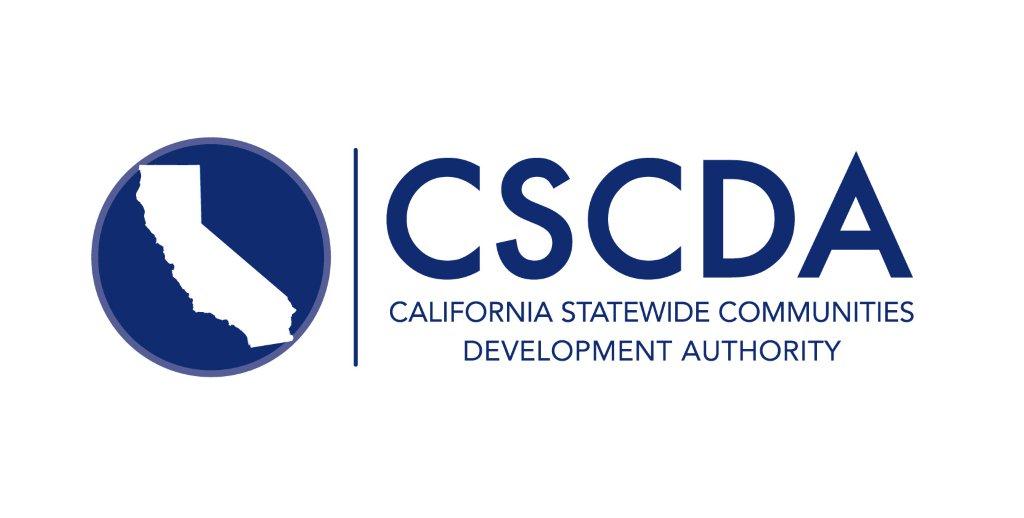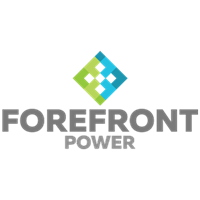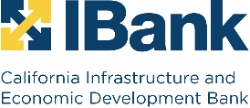Public Works Officers Institute
March 13-15, 2024
Portola Hotel at Monterey Bay
2 Portola Plaza, Monterey, CA
Thank you for attending the League of California cities Public Works Officers Institute in Monterey!
Designed for public works professionals of all career levels, this conference provides you with the essential information and updates necessary to most effectively run city public works departments. Previous sessions cover a variety of topics such as road safety, bridge programs, legislative updates, and leadership topics.
The institute took place March 13-15 at the Portola Hotel in Monterey, where more than 300 public works officials from California explored current topics of importance and strengthened professional connections.
Save the date for the next institute on March 19-21, 2025 at the Sheraton Universal Hotel in Universal City.
For additional questions, please contact Associate Manager, Event Programming, Erin Wylder.
Please see our event and meeting policies.
2024 Institute Information
View the full Public Works Officers Institute program here.
*Schedule subject to change
- An Anaylsis of the Brooks Act - 50 Years in Review
- Brief Look at the Evolution of Pubic Sidewalks
- Clean Fleet Deployment
- Fees, You Got Em! How do they Work Today
- Groundwater, Water Resiliency and the Challenges Do they Really Mix - Bucknam
- Groundwater Water Resiliency and the Challenges Do they really Mix - Kau
- Innovative Advancements in Fiber Deployment - Acosta
- Making work suck less healing workplaces through play
- Mulch Made to Order
- My Maintenance - Keeping Neighborhoods Clean
- On the Road to a Smoother Future
- Project Labor Agreements - What’s Good, What’s Bad and What’s Ugly
- Reduce Agency Liability, Prevent Busted Budgets Geotechnical Engineers of Record Policies - Berliner
- Tools to Electrify EnergIIZE Hydrogen Fact Sheet
- Tools to Electrify Your City Funding, EV Charging, and Collaboration
- Tools to Electrify EnergIIZE - Fact Sheet
- Tools to Electrify_Overall Project Factsheet
- Traffic Safety, Now!
- Understanding the Legislative Process
2023 Institute Session Descriptions
View the 2023 Public Works Officers Institute program.
Cal Cities Registration Open
10:00 a.m.-6:00 p.m.
Exhibit Hall Open (Wednesday only)
10:00 a.m.-6:30 p.m.
Lunch On Your Own
Opening General Session
1:00-2:30 p.m.
Cal Cities/CEAC President’s Welcome
Brian Balbas, President, County Engineers Association of California and Public Works Director/Chief Engineer, Contra Costa County
Benjamin A. Fine, P.E., President, Cal Cities Public Works Officers Department and Director of Public Works/City Engineer, Pismo Beach
Opening Keynote: Leading Change by Changing the Way We Lead
As a leader, you get better by change, not chance. The world of work has changed and continues to change. Blue-collar workers are more often recognized as the backbone of local government. What are the skills needed to lead this important group? How can managers create a purpose-filled vision that instills passion, drives performance, and produces collective success?
Learn the skills and habits of 21st Century leaders by attending this session designed to make you laugh, learn, and leave with new mindsets and skill sets. You’ll also find out workplace cold hard facts, why managers fail to get better, and how to ignite your public works team members through engagement, encouragement, and empowerment. Lastly, you’ll understand how to develop your “positivity” reflex and utilize it in the future, long after the presentation.
Speaker:
Ron Williams, Vice President of Personal Services Plus, LLC
Ron Williams, the “Leadership Whisperer,” is an internationally recognized speaker and trainer with more than forty years of experience in the public and private sectors. His insights on 21st-century leadership, employee engagement, and executive coaching make him one of the nation’s leading resources in understanding organizational and individual success and achievement. Ron has held many high-profile positions in his career, including as Chief of Staff for the District of Columbia’s Human Resources Department and General Manager of the Western Region for Nike. Ron created the Corporate Diversity department at Nike and was Nike’s Director of Training and Development. Ron has also worked with many federal government agencies helping them to develop programs to optimize their human capital.
Visit with Exhibitors
Concurrent Sessions
Public Construction and Contracting Law Update for California
Discover the case studies, public project contractor negotiation, and best practices that can safeguard your community from disputed agreements and potential litigation. These disagreements often result from legislative and regulatory changes in California public construction and contracting law that impact cities and counties.
Moderator and Speaker:
Deirdre Joan Cox, Partner, Burke, Williams & Sorensen, LLP
Speaker:
Maxwell Blum, Partner, Burke, Williams & Sorensen, LLP
Becoming Part of the Conversation: Increasing Public Works' Public Perception
Public works departments play a significant role in making everyday life as safe and convenient as possible for everyone. By helping the community understand our work, we can generate goodwill, gain compliance with new regulations, and keep the public safe. This panel discussion will focus on how research, planning, implementation, and evaluation can inform effective public education strategies when communicating major infrastructure projects, newly enacted state laws like SB 1383 (the organics mandate), and inspire calls to action related to natural disasters like floods, wildfires, and earthquakes.
Moderator:
Julie Hagen, Deputy Public Works Director, County of Santa Barbara
Speakers:
Maurice Chaney, Public Information Officer, Roseville
Lael Wageneck, Public Information Officer, Santa Barbara County Public Works
Visit with Exhibitors
Concurrent Sessions
4:15-5:30 p.m.
Public Input that Works: Strategies for Successful Community Engagement
The public’s increasing desire to have their say about everything from road designs to rate structures, environmental programs and more has posed new challenges for public works professionals. Learn how to meet new expectations for community engagement without giving up control or compromising your technical expertise. This session will provide real-life case study examples of how to engage the right people at the right time on the right decisions, plus some painful lessons from public engagement gone terribly wrong. In the end, participants will leave feeling more empowered, confident, and prepared when asked to “engage the public.”
Moderator and Speaker:
Kristina Ray, Communication & Engagement Director, Carlsbad
Speaker:
Carmen Kasner, Southwest Operations Director, Ardurra
Effective Pavement Program Management for Cities and Counties
Agencies throughout California utilize pavement management systems to monitor existing pavement conditions. A successful program integrates the existing pavement condition with a toolbox of various treatments for different pavement needs. The session will also briefly provide an overview of the importance of pavement compaction and an overview of the roles of contractors and agency representatives to maximize the performance of the pavement. Panelists will offer insight and best practices drawn from many years of research into effective pavement program management. Lastly, receive an update on the latest activities and initiatives sponsored by the City County Pavement Improvement Center (CCPIC) followed by an engaging discussion with the audience on local agency pavement management issues.
Moderator:
Matt Randall, Road Maintenance Division Manager, Placer County DPW
Speakers:
John Harvey, Professor, Director, City and County Pavement Improvement Center, UC Davis
Erik Updyke, Specialist, City and County Pavement Improvement Center
Drought and Potable Reuse on California's Central Coast
A combination of drought and population growth has overstressed California’s water supply infrastructure. The California Central Coast is now implementing multiple advanced treated recycled water projects to create a new and sustainable water supply. These projects represent pinnacle engineering efforts to secure sustainable water for our communities, with each project injecting the purified water into their respective groundwater basins for storage and protection against seawater intrusion. Panelists will address the permitting, public support, financing, and engineering elements necessary to implement recycled water projects.
Moderator:
Justin Pickard, Project Manager, Water Systems Consulting
Speakers:
Gina Dorrington, General Manager, Ventura Water
Benjamin Fine, President, Public Works Officers Department and Director of Public Works/City Engineer, Pismo Beach
Andrew Salveson, Vice President, Carollo
Engineers
Networking Reception
5:30-6:30 p.m.
Make new friends and catch up with old ones while enjoying delicious appetizers and tasty beverages during the evening networking reception. It's the perfect opportunity to form support networks within your profession.
Cal Cities Registration Open
Joint Networking Breakfast
General Session
9:00–10:30 a.m.
Cal Cities and CEAC President’s Welcome
Local Streets & Roads Awards
Brian Balbas, Public Works Director/Chief Engineer, Contra Costa County
Benjamin Fine, President, Public Works Officers Department and Director of Public Works/City Engineer, Pismo Beach
What Public Works Professionals Need to Know about Finance
Learn the latest hot topics when it comes to California's municipal public works financing, including the latest on state and local transportation funding. Geared toward public works professionals, understand the rules and trends in taxes, fees, and other revenues; the relationship with the state budget, and problems and prospects for reform. Get answers to the most pressing fiscal issues facing public works.
Speaker:
Michael Coleman, CaliforniaCityFinance.com
Break
Concurrent Sessions
10:45 a.m.-noon
Project Labor Agreements for Local Public Works Projects
Project Labor Agreements (PLAs), once limited to mega projects, are being used on routine, local projects. Why is that, and what are the advantages and downsides? This session will provide the basic legal background on PLAs, including enabling legislation and history, what they do and don’t do, legal pros and cons, and how their use has changed over time. Leading PLA experts will detail their experience with the implementation of PLAs, including the impact on the bidding process, management, and cost of their projects.
Moderator and Speaker:
Jonanthan Holtzman, Parnter, Renne Public Law Group
Speakers:
Julian Gross, Principal, Law Office of Julian Gross
Sebrina Owens-Wilson, Regional Impact Program Manager, Metro
The Changing Landscape of Recycling: Local Market Development and Participation
The way we recycle in California is on the verge of drastic change. With the passage of several new landmark bills, California will need to recycle the old recycling system. Hear from experts on the latest in the recycling space and what your area needs to do to navigate the new recycling mandates.
Moderator:
Tom Koutroulis, Director, OC Waste & Recycling
Speakers:
Dr. David Crohn, Cooperative Extension Waste Management Specialist, Department of Environmental Sciences (Retired), University of California Cooperative Extension
Tim Goncharoff, President,
TAG Consulting
Heidi Sanborn, Executive Director, National Stewardship Action Council
Extreme Hazards: Planning, Recovery and Resilience
Fire, flashflood, debris flows, extreme heat, and seismic hazards - this session builds off of instant polling feedback received at the 2022 Public Works Officers Institute and dives deeper into the current and future “extreme hazard” challenges facing California’s cities and counties. State and local leaders will share the latest lessons learned, and GIS resources: funding and technical assistance available for suburban, urban, and rural communities. Interactive polling will be used to jump-start conversations with your colleagues on overcoming the many hurdles (i.e.: documentation and contracting!) and cost-effective, realistic-to-implement ideas that you can take home to your team.
Moderator:
Sarah Rubin, Outreach and Engagement Advisor, CA Department of Conservation
Speakers:
Jeremy Lancaster, Supervising Engineering Geologist, California Geological Survey
Brian Olson, Senior Engineering Geologist, California Geological Survey
Jeff Pratt, Public
Works Agency Director, Ventura County
Networking Luncheon
Concurrent Sessions
1:30-2:45 p.m.
State of Infrastructure Investment and Jobs Act
Over the next five years, the federal government is making significant funding available to states and localities to improve roads and bridges, water infrastructure, resilience, internet, and more. In this session, hear from lead state agencies on the status of the formula funding, where and how to best apply, and discuss best practices with other local governments about applying for competitive grants.
Moderator:
Paz Gomez, Deputy City Manager, Public Works, Carlsbad
Speakers:
Sean Maguire, Board Member, State Water Resources Control Board
Paul-Albert Marquez, Deputy District Director - Planning, Goods Movement, and Local Assistance, District 7, California Department
of Transportation
Robert Osborn, Director, California Public Utilities Commission
Don't Throw Paving Dollars Out with the Trash
Do you have enough money for pavement maintenance? The statewide average Pavement Condition Index for local streets and roads is 66. This “at risk” condition indicates that current maintenance funds are insufficient. Hear how one California city successfully secured extra funding sources, and how you can adopt these financial saving practices in your community.
Moderator:
David Leamon, Public Works Director, Stanislaus County Public Works
Speakers:
Debaroti Ghosh, Pavement Engineer/Specialist, Nichols Consulting Engineers
Lisa Petersen, Public Works Director, Pacifica
Margot Yapp, President/CEO, Nichols Consulting Engineers
SB378 and New Innovations for the Deployment of Fiber Networks
The panel will focus on broadband deployment strategies and the use of innovative methodologies to install fiber networks more efficiently and with less impact on streets. Also highlighted will be potential cost savings, lighter environmental impacts (spoils, air quality, vehicle trip reductions, etc.), and maximizing investment dollars for community benefit.
Moderator:
Rochelle Swanson, Lead of CA State Policy & NorCal Government Affairs, Crown Castle
Speakers:
Ted Allen, City Engineer, Los Angeles, Bureau of Engineering
Daniel Schweizer, Director, Government Affairs, Crown Castle
Walter Tustin, Federal Funding Program Manager, Crown
Castle Fiber LLC
Break
Concurrent Sessions
3:00-4:15 p.m.
Case Study: Broadband Internet and Smart City Applications
Learn how the city of Placentia entered into a unique partnership to deliver fiber optic broadband internet access to every home and business in the city utilizing a new micro-trenching technique within the city's road right-of-way. The Placentia FiberCity® Project is a privately funded, $35 million investment in Placentia that will deliver high speed broadband access to every resident and business. This presentation will focus on the construction methods used to install the fiber system as well as how the city managed the contractor's efforts in delivering this city-wide project.
Moderator:
Marcus Bowman, Community Relations Manager, SiFi Networks
Speakers:
Luis Estevez, Deputy City Administrator, Placentia
Jordan Harris, Area Manager, SiFi Networks
Jean Miller, Area Manager, MidWest Region, SiFi Networks
Making Public Works an Attractive Option in a Changing Workplace
The current workplace looks different, the labor force has changed, and the job market is volatile. Public works organizations are facing new workforce challenges while the largest ever investment in infrastructure is happening. So, how do we find success in this divergent situation? It requires that public works leaders find creative means of retaining talent, recruiting in competitive markets, and inspiring the next generation to join our professions.
Moderator:
Jason Drew, Principal, NCE
Speakers:
Joan Araujo, Director Central Services, Ventura County Public Works Department
Joshua Pack, Director of Public Works, County of Butte
Walter Rubalcava, Civil Engineer, County of Santa
Barbara
Paul Valadao, Lecturer, Cal Poly State University, San Luis Obispo
Going to the Well: Discussing Municipal Water Issues
As climate change continues to impact California’s water supply, hear from the State Water Board and local water utilities on challenges and successes in responding to this current drought and planning for improved water supply resiliency in future droughts.
Moderator:
Brian Balbas, Public Works Director/Chief Engineer, Contra Costa County
Speakers:
Jessica Bean, Assistant Deputy for Drought and Water Rights Modernization, State Water Resources Control Board
Elizabeth Lovsted, Water Resources Manager, San Diego County Water Authority
Peter Martin, Deputy Director Water Resources, Santa Rosa Water
Cal Cities Registration Open
Cal Cities Breakfast
General Session
9:00–10:00 a.m.
Receive a legislative update curated for public works professionals leading California cities.
Break
Closing General Session
10:10-11:30 a.m.
Leading High Performance
Is your team known for consistently delivering on objectives? Do team members act as resources for each other? Does your team work well together, learn quickly and adapt easily to change? Effective delivery of Public Works services requires teamwork at all levels, and today’s Public Works environment requires teams to be more nimble, adaptable, and resilient than ever before. Whether you’re an experienced manager or new to the role, this session will help you unlock the full potential of your team.
During this interactive, fast paced session, participants will: 1. leverage Six Sigma communication techniques to fuel efficiency and reduce or eliminate rework 2. learn to maximize the benefits of conflict (innovation, inclusion, and diversity of thought), while at the same time, preserving and strengthening relationships and 3. learn two powerful coaching strategies to fuel development for team members and capacity for leaders.
Adjourn
2023 Institute Session Materials
- Becoming Part of the Conversation Increasing Public Works' Public Perception
- Broadband Internet and Smart City Applications for Your City
- Case Study Broadband Internet and Smart City Applications
- Closing Session Leading High Performance
- Don't Throw Paving Dollars Out with the Trash
- Drought and Potable Reuse on California's Central Coast
- Effective Pavement Program Management for Cities and Counties
- Extreme Hazards Planning, Recovery and Resilience - Lancaster
- Extreme Hazards Planning, Recovery and Resilience - Rubin
- Extreme Hazards Planning, Recovery and Resilience - Olson
- Extreme Hazards Planning, Recovery, Resilience - Pratt
- Going to the Well Discussing Municipal Water Issues - Bean
- Going to the Well Discussing Municipal Water Issues -Martin
- Leading Change by Changing the Way we Lead
- Making Public Works an Attractive Option in a Changing Workplace
- Public Construction and Contracting Law Update for California
- Project Labor Agreements for Local Public Works Projects
- Public Input That Works Strategies for Successful Community Engagement
- Public Works Officers Institute floor plan
- SB378 and New Innovations for the Deployment of Fiber Networks
- Speaker Bios
- State of Infrastructure Investment and Jobs Act
- The Changing Landscape of Recycling Local Market Development and Participation - Goncharoff
- The Changing Landscape of Recycling Local Market Development and Participation
Previous Institute Session Materials
- Becoming Part of the Conversation Increasing Public Works' Public Perception
- Broadband Internet and Smart City Applications for Your City
- Case Study Broadband Internet and Smart City Applications
- Closing Session Leading High Performance
- Don't Throw Paving Dollars Out with the Trash
- Drought and Potable Reuse on California's Central Coast
- Effective Pavement Program Management for Cities and Counties
- Extreme Hazards Planning, Recovery and Resilience - Lancaster
- Extreme Hazards Planning, Recovery and Resilience - Rubin
- Extreme Hazards Planning, Recovery and Resilience - Olson
- Extreme Hazards Planning, Recovery, Resilience - Pratt
- Going to the Well Discussing Municipal Water Issues - Bean
- Going to the Well Discussing Municipal Water Issues -Martin
- Leading Change by Changing the Way we Lead
- Making Public Works an Attractive Option in a Changing Workplace
- Public Construction and Contracting Law Update for California
- Project Labor Agreements for Local Public Works Projects
- Public Input That Works Strategies for Successful Community Engagement
- Public Works Officers Institute floor plan
- SB378 and New Innovations for the Deployment of Fiber Networks
- Speaker Bios
- State of Infrastructure Investment and Jobs Act
- The Changing Landscape of Recycling Local Market Development and Participation - Goncharoff
- The Changing Landscape of Recycling Local Market Development and Participation
- What Public Works Professionals Need to Know about Finance
- Be the Change How to Modernize Your Government - Misner
- Design Immunity and the Trivial Defect Rule - Ceccon
- Homelessness Moving Beyond Streets and Parks
- Legal Topics Speed Sessions
- Legislative Update
- Project Labor Agreements for Local Public Works Projects - Foley
- Project Labor Agreements for Local Public Works Projects - Foley
- Project Labor Agreements for Local Public Works Projects - Graham, Gross, Holtzman
- Public Contracting Requirements Emergency Preparedness and Federal and State Reimbursement
- Stormwater and Health California's Trash Amendments and Tobacco Product Waste Kingston
- What Public Works Officers Need to Know About City Finance - Coleman
- What's Driving Transportation Choices - Barth











.png?sfvrsn=26f0b13f_3)
















